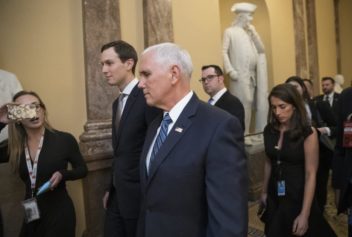AUSTIN, Texas (AP) — A federal appeals court gave Texas more latitude Monday to enforce a “sanctuary cities” ban backed by the Trump administration, but opponents suing over the immigration crackdown said it was unlikely to drastically change the status quo.
The decision by the 5th U.S. Circuit Court of Appeals in New Orleans comes nearly a month after a lower judge blocked most of the law signed in May by Republican Gov. Greg Abbott.
The unanimous ruling by a three-judge panel left both sides proclaiming victory. Republican Texas Attorney General Ken Paxton said the decision would allow the state to “enforce the core” of the law while opponents predicted that the actual effect would be limited.
“I think much of the injunction remains in place to allow law enforcement agencies to define how their officers will participate in those activities,” said Jose Garza, an attorney for the Mexican American Legal Defense and Education Fund.
The law requires Texas cities and counties to comply with federal immigration officials’ requests to detain people who are suspected of being in the country illegally and jailed on non-immigration offenses.
U.S. District Judge Orlando Garcia blocked much of the law on Aug. 31, a day before it was to take effect. The state asked the New Orleans-based 5th U.S. Circuit Court of Appeals to let the law take effect ahead of oral arguments set for November.
U.S. Attorney General Jeff Sessions has praised the Texas law and the Department of Justice filed arguments in support of it, as did several attorneys general from other states.
The law’s opponents argue it violates the Fourth Amendment by requiring police to detain people suspected of illegal immigration without probable cause. They also say it illegally puts local police in the federal role of immigration enforcement officers, and is unconstitutionally vague as to exactly when a local law enforcement officer would be in violation of the law.
Supporters of the state law say immigration officials have already determined probable cause when they seek to have local officials detain someone. They also argue that federal and local officials have a long history of cooperation on immigration matters and that the law is clear in its prohibition against local government’s policies restricting immigration enforcement.


